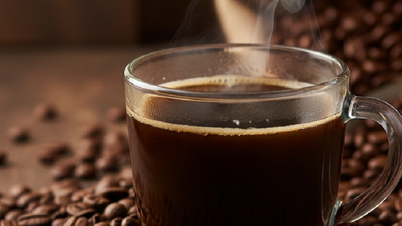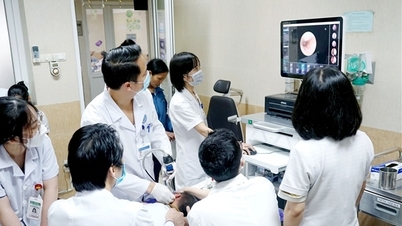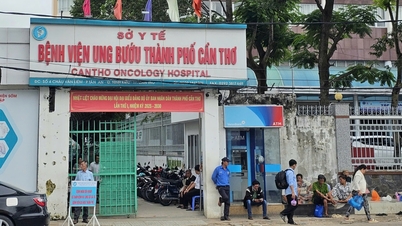'New research has found a simple way to avoid blood sugar spikes after meals'. Start your day with health news to see more of this article!
Starting the day with health news , readers can also read more articles: What should people with weak kidneys eat and drink?; 4 things that few people know are unintentionally harming the liver ; Symptoms, causes and treatment of brain tumors...
Research: Eat this 30 minutes before meals to avoid blood sugar spikes
New research, just published in the medical journal Clinical Diabetology, has found a surprisingly simple way to avoid blood sugar spikes after meals.
Dr. Anoop Misra, Director of Fortis Hospital - a specialist in diabetes treatment, and Dr. Seema Gulati of the National Diabetes, Obesity and Cholesterol Foundation of India analyzed a series of studies related to eating methods to avoid blood sugar spikes after meals and concluded that "lining" the stomach before meals is a smart way that can be as effective as drugs to control blood sugar.
Researchers have found a creative yet simple way to control blood sugar: "Snack" before meals.

Researchers have found a creative yet simple way to control blood sugar: "Fill your stomach" before meals.
The results showed that simply eating nuts such as almonds containing good fats, a little protein such as boiled eggs or a fiber-rich salad within 15-30 minutes before a main meal containing carbohydrates, can help reduce blood sugar spikes after meals by up to 20% and control blood sugar better.
Specifically, eating 20 grams of almonds 30 minutes before a main meal can reduce the post-meal spike in blood sugar by 28%. While eating protein (like boiled eggs) or fiber (like vegetables) reduces this level by 20-25%. The next content of this article will be on the health page on March 9.
Symptoms, causes and treatments of brain tumors
Brain tumor is one of the serious neurological diseases that can affect the quality of life of the patient.
With more than 150 different types identified, brain tumors can be benign or malignant, causing a variety of complications depending on location, size, and growth rate.
Scientists have not yet determined the exact cause of brain tumors, but some recognized risk factors include:

Some common symptoms of brain tumors include: Persistent headaches, seizures, memory and language disorders
Genetic factors. Some people may carry genetic mutations associated with brain tumors, such as: Neurofibromatosis syndrome (NF1, NF2), Turcot syndrome (APC gene), Li-Fraumeni syndrome (TP53 gene), Gorlin syndrome (PTCH gene). However, only about 5-10% of brain tumors are related to genetics.
Environmental factors. Certain external factors can increase your risk of developing a brain tumor, including:
Radiation exposure : Exposure to high doses from X-rays or previous cancer treatment can cause DNA damage in brain cells.
Toxic chemicals : Certain chemicals in the work or living environment may be linked to tumor development.
Viral infections : Some studies have shown that certain viruses may increase the risk of brain tumors, but the results are not conclusive. The next part of this article will be on the health page on March 9.
4 little-known things that are unintentionally harming the liver
The liver performs about 500 essential functions every day, such as cleaning the blood, removing toxins, and storing minerals and vitamins. Some daily habits that many people are unknowingly causing long-term damage to the liver.
If not changed, these habits can increase the risk of liver diseases such as fatty liver, hepatitis or even cirrhosis.

Chronic sleep deprivation increases the risk of toxin accumulation in the liver
To avoid liver damage, people should avoid the following:
Not drinking enough water. When the body is dehydrated, the liver has to work harder to process nutrients and remove toxins, which puts pressure on the liver and reduces its performance. In addition, dehydration also affects the production of bile, a substance needed to digest fats and eliminate waste.
Not drinking enough water also increases the risk of toxins accumulating in the liver, causing liver damage over time. Experts recommend that each person should drink at least 2 liters of water/day for healthy liver function.
Eating too much sugar. A diet high in sugar, especially fructose from soft drinks, candy, and processed foods, can cause non-alcoholic fatty liver disease. When blood sugar levels are too high, the liver converts sugar into fat. Over time, the buildup of fat in the liver can cause inflammation and impair liver function.
To protect the liver, people should limit the consumption of sugary drinks, avoid foods containing a lot of white starch, and eat a lot of green vegetables and fresh fruits so that the body absorbs natural sugars instead of refined sugars. Start your day with health news to see more of this article!
Source: https://thanhnien.vn/ngay-moi-voi-tin-tuc-suc-khoe-loi-ich-khi-an-trung-30-phut-truoc-bua-an-185250309001315056.htm


![[Photo] General Secretary To Lam receives US Ambassador to Vietnam Marc Knapper](https://vphoto.vietnam.vn/thumb/1200x675/vietnam/resource/IMAGE/2025/9/29/c8fd0761aa184da7814aee57d87c49b3)
![[Photo] National Assembly Chairman Tran Thanh Man chairs the 8th Conference of full-time National Assembly deputies](https://vphoto.vietnam.vn/thumb/1200x675/vietnam/resource/IMAGE/2025/9/29/2c21459bc38d44ffaacd679ab9a0477c)
![[Photo] Many streets in Hanoi were flooded due to the effects of storm Bualoi](https://vphoto.vietnam.vn/thumb/1200x675/vietnam/resource/IMAGE/2025/9/29/18b658aa0fa2495c927ade4bbe0096df)
![[Photo] General Secretary To Lam attends the ceremony to celebrate the 80th anniversary of the post and telecommunications sector and the 66th anniversary of the science and technology sector.](https://vphoto.vietnam.vn/thumb/1200x675/vietnam/resource/IMAGE/2025/9/29/8e86b39b8fe44121a2b14a031f4cef46)
![[Photo] General Secretary To Lam chairs the meeting of the Central Steering Committee on preventing and combating corruption, waste and negativity](https://vphoto.vietnam.vn/thumb/1200x675/vietnam/resource/IMAGE/2025/9/29/fb2a8712315d4213a16322588c57b975)


































































































Comment (0)